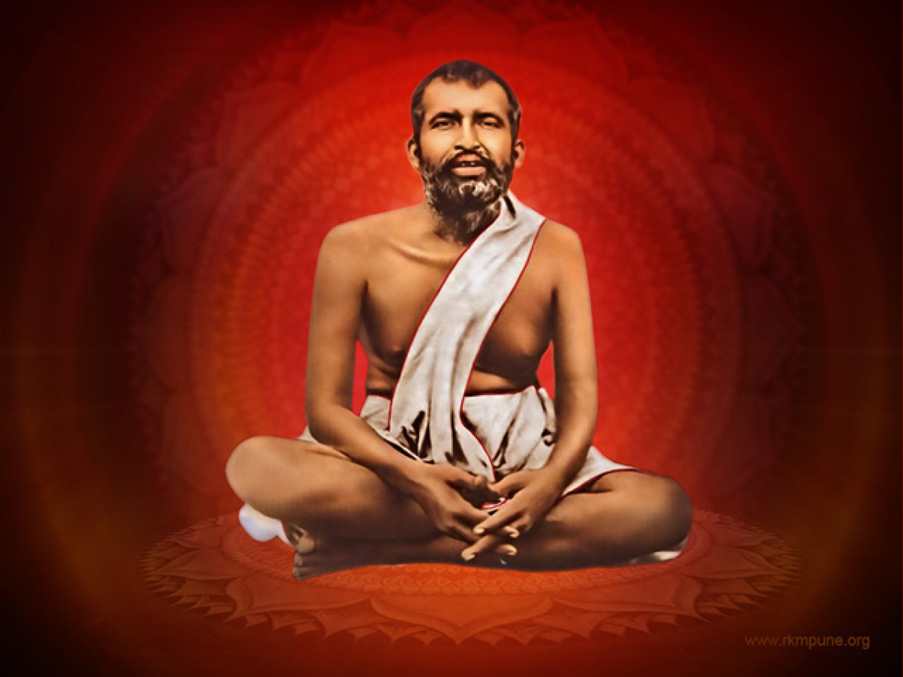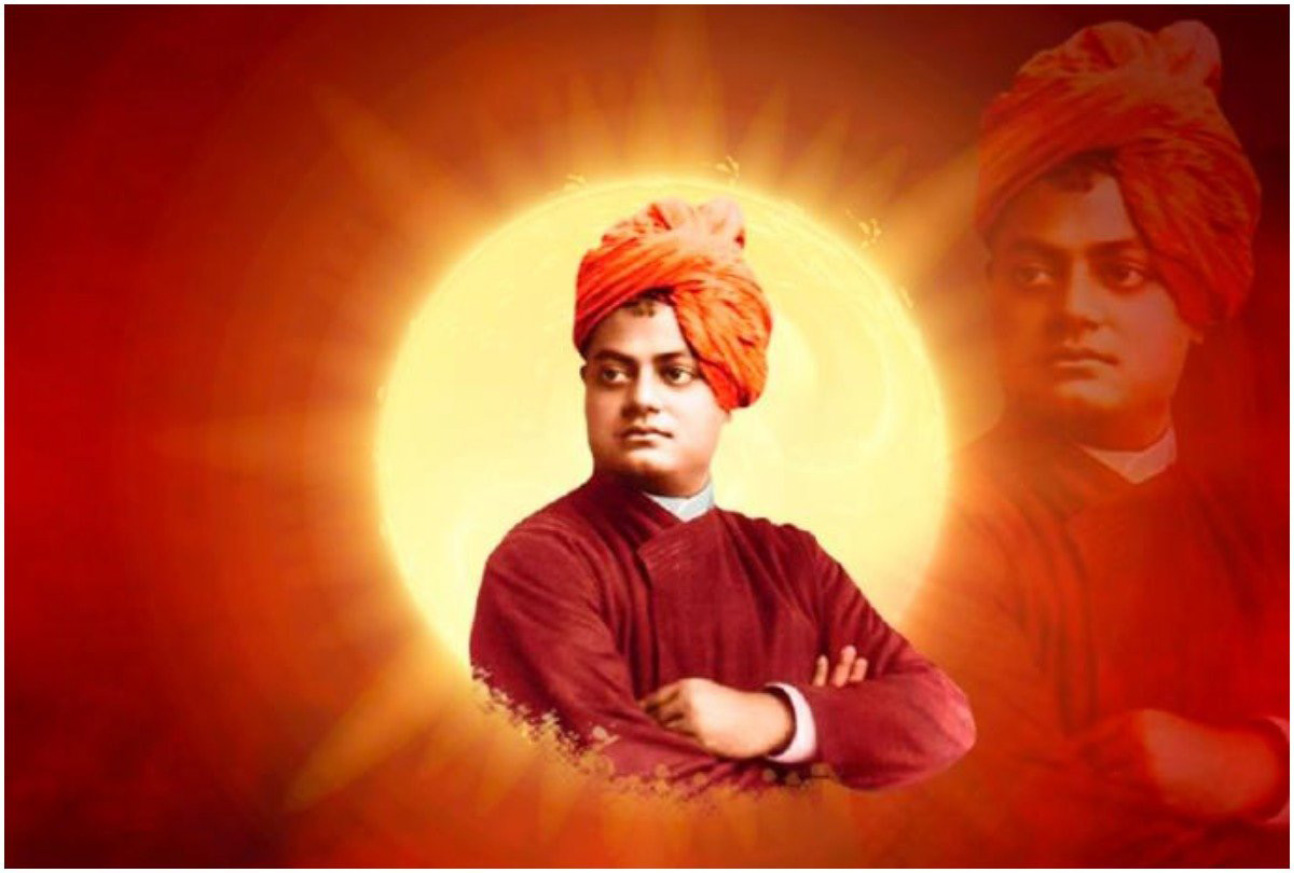Sri Ramakrishna Paramhansa, Guru of Swami Vivekananda, used to say that two things are necessary for the realization of God: Faith and Self-Surrender. So, what do we mean by faith? It is confidence in self, a devotion to higher self, and a genuine effort to serve that; all this is faith. Fickle mindedness is the opposite of faith. Doubts, that I define as the vagueness of purpose, and slovenly performance are the traits of a person lacking in faith. A man of faith, however, is consistent, up and doing, earnest, and is dedicated to the ideal. Obstructions only increase his faith. So, faith or Shraddha, is different from a mere static belief. Shraddha with reverence requires a relentless effort to God’s vision and realization, or else it won’t be called Shraddha; only then will it be belief.

Yearning is also used in connection with the realization of God. It means a deep or intense longing to see or realize one’s object of devotion. A four-year-old child whose mother just goes out of sight feels such a deep longing to see her again, that he would not stop crying until he sees her. Or just imagine how much pain a newly married bride feels for her husband who had to go away to another town for a few days on an important business matter; the same would be the condition of the husband who leaves her back home.
Each of the above states of intense feeling is an expression of yearning. Can we direct that intense yearning to God’s realization? Sri Ramakrishna stressed a similar kind of intense and focused yearning for the realization of God. Faith and yearning are not only necessary for the realization of God; they are also necessary for any scientific endeavor. How many years of dedicated research, experimentation, and trials did it take, for instance, for scientists to send a human being to the moon, and ultimately succeed in their efforts? Besides, without having faith in themselves, scientists would not be able to proceed with the space mission in the first place. Similarly, equally great effort, physical as well as financial, would be required to be made in finding the cure for diseases like Alzheimer, cancer, diabetes, and so forth. The researchers could go on only if they had faith.
So, faith is an important factor both in a scientific inquiry and religious truth, especially in Hinduism where the objective of a devotee is to “see” God or have His darshan and realize Him. This seeing is not like we see each other; rather, it is like seeing a beautiful sunset, which can be felt and is very personal, and cannot be described in words.
Sri Ramakrishna said: One attains God when one feels a yearning for Him. (The Gospel, 337) He illustrated it with another example. A man had a daughter who became a widow at a very young age and had never known her husband. She knew some girls of her age who were also married. She asked her father. ‘Where is my husband?’ The father replied: ‘Govinda (another name for Lord Krishna) is your husband. He will come to you if you call Him.’ At these words, she went to her room, closed the door, and cried to Govinda: ‘O Govinda, come to me! Show Yourself to me! Why don’t you come?’ God could not resist the girl’s piteous cry and appeared before her. She was indeed filled with unspeakable joy!
For most of us who are rational thinkers, it is hard to accept the veracity of the above story. True, one may not accept this story literally. What one needs to understand is the point that the story is making. Once Narendra, the future Swami Vivekananda, told Sri Ramakrishna the same thing about the Vrindavan episode of the divine play of Sri Krishna with the gopis. He said that these were just the imagination of the writer of the Bhagavata scripture. Sri Ramakrishna told him, ‘I am not asking you to accept the stories of the divine leela (play), but think about the deep love and intense yearning of the gopis, including that of the foremost of the gopis, Sri Radha, those stories represented.’ It is that kind of love we all need to cultivate for the realization of God.
The point is, said Sri Ramakrishna: One must have a childlike faith – and the intense yearning that a child feels to see its mother. Sri Ramakrishna gave one more example of his nephew, Shibu, who was then four or five years old. One day, Shibu was chasing grasshoppers by himself, while leaves rustled in the nearby trees. ‘Hush! Hush!’, he said to the leaves. ‘I want to catch the grasshoppers. He was a child and saw everything was throbbing with consciousness. One cannot realize God without the faith that knows no guile, the simple faith of a child.” (The Gospel of Sri Ramakrishna, 568.)
Many of us want to lead a spiritual life but fail to achieve this desire. The reason is obvious. As a saying goes, a person is what his or her thoughts are. If we think of worldly things, we cannot be spiritual; we will remain worldly. On the other hand, if we read and think about spirituality and spiritual matters, we will feel joy and peace.
Sri Ramakrishna often used to get irritated when one of his devotees from Brahmo Samaj, one of the reforming sects in Hinduism, said that he was a sinner. His response to that assertion was that if you keep repeating, “I am a sinner”, then you will certainly be drowned in the worldliness. “One should have such a burning faith in God,” he once said, that one can say, ‘what? I have repeated the name of God, and sin cannot cling to me? How can I be a sinner? How can I be in bondage?’ Why should one talk only about sin and hell, and such things? Say but once, ‘O Lord, I have undoubtedly done wicked things, but I won’t repeat them.’ And have faith in His name.” (The Gospel of Sri Ramakrishna, 138)
Sri Ramakrishna told his devotees to surrender to God to receive His grace. But self-surrender is not an easy discipline to practice? For those who practice this discipline earnestly, God never disappoints. He would often illustrate this with a story of a weaver who had surrendered every act of his to the ‘will of Rama’. Sri Ramakrishna said that one who has realized God is firmly convinced that he is the machine and God is its Operator; that God alone is the Doer and all others are His instruments. One should be aware that everything happens by the will of Rama.’
To conclude this essay, I would like to share with you the case of two Swamis in recent times who didn’t carry any money in their travels. One is Late Swami Ranganathananda; he was the thirteenth president of the Ramakrishna Mission and Math. As we all know that the Swami was a world traveler and spread the message of Vedanta. He also often had the practice of not carrying any money during his travels, because of that he had to face humiliation sometime. But he did not change his practice of not carrying any money. (The Universal Message of the Bhagavad-Gita, volume 3, 232.)
Besides this, there is one more instance regarding my own Guru, Late Swami Bhashyananda, the head of the Vivekananda Vedanta Center of Chicago. Our encounter with the Swami occurred in 1974 when I was not yet a devotee. On behalf of my University, I invited him to speak on Hinduism. The day he arrived, I housed him at the Holiday Inn. In the morning, I called him that I would be coming soon to pick him up, and in the meantime, he should check out. Soon after that, I received a call from one of his devotees from Chicago who happened to have come to our town for a job interview. He said that the Swami could not check out unless he paid the hotel bill and told me that the Swami had no money to pay the bill. So, I told the caller that he should go ahead and pay the bill and I would reimburse him. I also told him that he should come to our house for breakfast with the Swami. Of course, I reimbursed him for Swami Ji’s hotel bill.
Then as I was driving the Swami in the evening to the airport, I asked him about not carrying money on his travels. He told me that it was not his practice to carry any money. Then I asked him if the university paid him the right amount for the honorarium. He said that he didn’t know what was right and he didn’t see the amount on the check. On my request to see the check, the Swami handed over the envelope to me. When I opened the envelope and saw the amount of $50 on the check, I was shocked. For, at the international committee’s meeting a month before the event, we had decided to pay $100 to the speakers. ($100 in 1974 was considered quite reasonable.) I asked him to leave the check with me and I would send him the amended check in a few days. I talked with the committee’s chair the next day and got the check corrected, and immediately sent the corrected check to Chicago.

We don’t know how many other swamis follow the practice of not carrying any money, but from the two examples we have given above, it is quite clear that when one surrenders to God in earnest, God’s grace is bound to follow.
To be continued with anecdotes from Swami Vivekananda’s life, the most famous disciple of Shri Ramakrishna Paramhansa, in a future issue of Hindu Vishwa.
(Umesh Gulati, Ph.D., Professor Emeritus
Shri Umesh Gulati, based in Durham, NC, is a Vedantist, and a devotee of Sri Ramakrishna and Swami Vivekananda. He has regularly published articles in Vedanta Kesari from Chennai and Prabuddhabharata from Kolkata, and also in Vedanta magazine from England. Lately he also published articles in Marg magazine. After receiving Ph.D, in Economics from the University of Virginia in 1967, he joined East Carolina University in Greenville, NC the same year and retired in 1999.)

